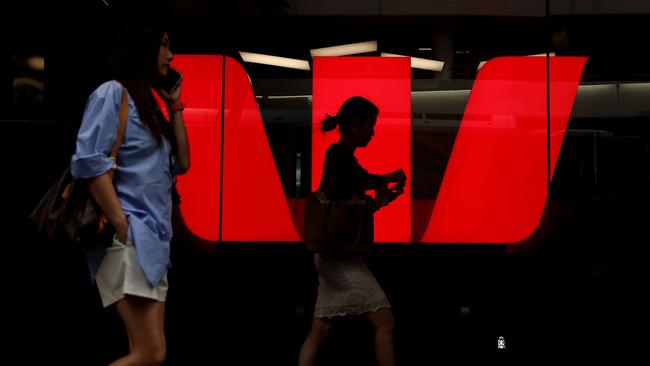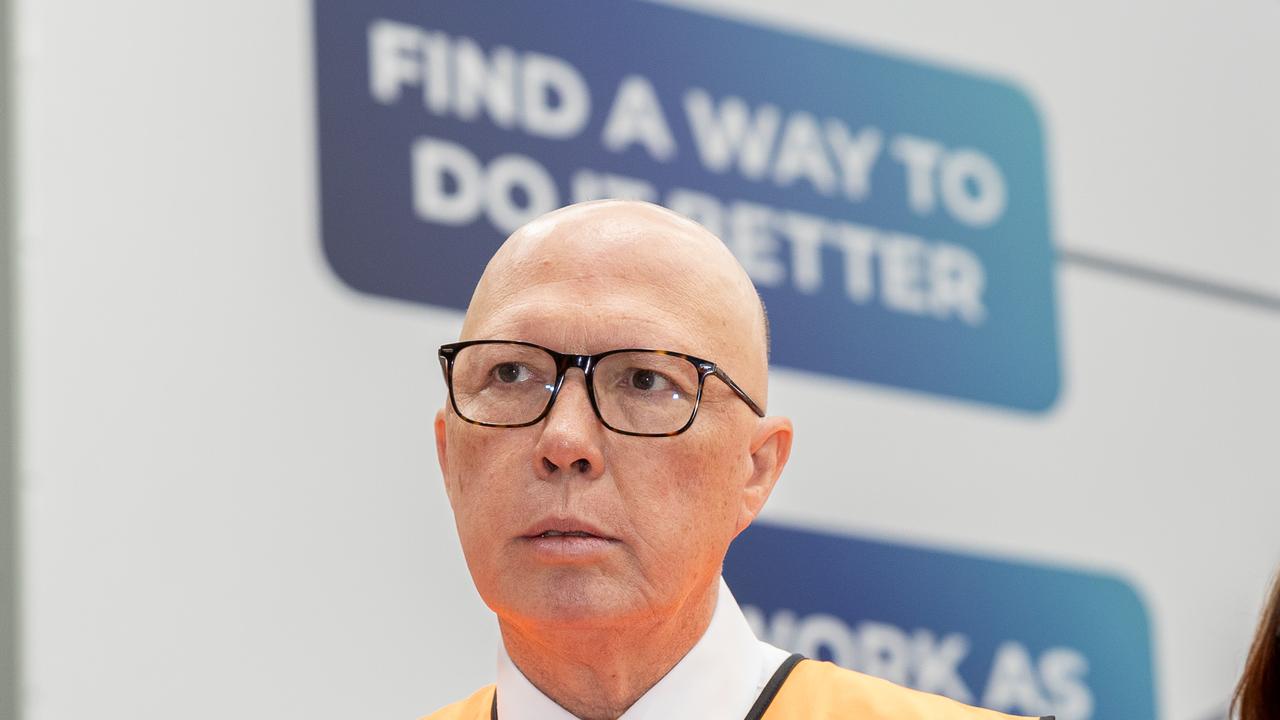Westpac’s King cautions on budget, rates
The bank’s CEO says Jim Chalmers has an ‘unenviable task’ with the budget, warning rates may not drop until 2025.

Business
Don't miss out on the headlines from Business. Followed categories will be added to My News.
Westpac boss Peter King says Treasurer Jim Chalmers has an “unenviable task” in handing down next week’s budget as spending pressures ramp up, and has warned on the new two-speed economy pitting young against old in the inflation fight.
Speaking to The Australian after handing down Westpac’s first-half result, which saw the lender splash the cash to shareholders through bumper dividends and a beefed-up buyback, Mr King said the economy was proving resilient and unemployment would need to get to “the mid-4s” before the Reserve Bank could start cutting rates. He sees rates staying on hold until 2025.

“The government is dealing with a number of issues, whether it be investment in defence, the energy transition, the care economy, there certainly are pressures in the budget … so I think (Chalmers has) got a pretty unenviable task at the moment to balance everything up and keep it going. And it’s with the backdrop of that last bit of inflation. Getting it down is proving tricky, so it is a bit of a difficult balancing position for him in terms of landing the budget,” Mr King said.
“The (government’s) got to be careful about what they invest in so that they don’t generate demand,” he added.
The Treasurer on Monday said Labor was realistic about the challenges facing the economy and the budget.
“We’ve made substantial progress in getting the budget in better nick, having delivered the first surplus in 15 years with a second one in prospect, but we know that the pressures on the budget are intensifying, not easing,” Dr Chalmers said.
If interest rates stay where they are for longer, that will create “a little bit of pain”, but unemployment is the key to bringing inflation and rates down, Mr King said.
“We haven’t we haven’t seen any major change in unemployment … At the macro level, the economy is actually very resilient but at the tail, those people that are doing it tough are really doing a tough and they’re mainly young and lower income earners,” he said.
“The government needs to use its ability to move money around the different segments, tax policies, grants and that, and be thoughtful about it. I don’t think it stokes inflation because most of its going to go to standard living costs as opposed to discretionary costs.”
Westpac, meanwhile, will hand an additional $1.5bn back to shareholders on top of its regular dividend payout as it looks through pain points in its consumer bank and the uncertain economic outlook following a 16 per cent drop in first-half profit.
The nation’s second-largest bank on Monday declared a 15c per share special dividend along with a 75c per share interim dividend, fully franked, a lift of 7 per cent on the prior corresponding period.
Its previously announced $1.5bn buyback, meanwhile, will swell to $2.5bn, with the bumper capital returns all due to momentum in the business and a balance sheet that is “in good shape”, Mr King said.
While analysts had been tipping some form of capital return to shareholders in the form of a buyback or special dividend, Westpac delivered on both counts. The lender’s shares rose 2.6 per cent to $27.12 by the market close.
While rewarding shareholders, Mr King at the same time cautioned on the new two-speed economy as younger Australians struggle with cost-of-living pressures while older cohorts continue to spend.

“Young people are really doing it the hardest, and also those who have the lowest savings are doing it the hardest. We used to talk about the two-speed economy with the mining states and the non-mining states. I think we’ve got a two-speed economy (with) those who are really hurting from interest rates and inflation versus those that are not. And so that inequality between age groups is the one that continues to attract my focus.”
The bank has seen an uptick in stress on its loan books, with 18,000 customer hardship packages in place, up from pre-Covid levels of 11,000.
The half-year numbers also detailed a harsh profit hit in its consumer business, which the bank attributed to price competition in home loans. Net profit in the consumer bank slumped 32 per cent on the prior corresponding period, to $1bn, as operating income fell 12 per cent.
The profit decline was not as stark when compared to the second half, down 3 per cent, as lenders pulled back from the mortgage wars.
Net interest margin, a key measure of profitability, declined 7 basis points to 1.89 per cent, while core NIM fell 9 basis points to 1.8 per cent.
The bank’s $3.34bn first-half net profit was a 16 per cent drop on the same period last year and was broadly in line with analyst estimates. Excluding notable items, net profit dipped to $3.5bn, down 8 per cent on the prior corresponding period.
Return on average equity fell 200 basis points to 9.3 per cent.
Net interest income was flat at $9.13bn. A 3 per cent increase in average interest-earning assets was driven by a 4 per cent lift in average loans across business lending and mortgages, the bank said.
But wage pressures, third-party vendors and higher software costs all pushed operating expenses up 8 per cent in the half, to $5.4bn.
Loans increased by 5 per cent to $784.8bn, driven by a 5 per cent lift in housing loans — at 1.1x system — as well as business lending growth of 9 per cent. Net profit in the business bank rose 7 per cent to $1.1bn.
Deposits lifted 4 per cent to $650.9bn, with consumer deposits, growing at a clip of 9 per cent, driving the charge.
Impairment charges were 9 basis points of loans, down 1 basis point.
Jarden analyst Carlos Cacho said it was a solid result with modest beats across most lines.
The stabilisation of core NIM over the last six months is a clear positive and suggests that the margin drag is now largely behind it. While guidance was limited, the continued moderation in competition (including St George announcing the end of cashbacks) should be a positive,” he said.
Westpac on Friday said it would move to end cashback offers for borrowers at its RAMS, BankSA, and St George brands.
Borrowers will be required to apply by June 30 and settle home loans by October 31 to be eligible for the last of the cashback deals.
More Coverage
Originally published as Westpac’s King cautions on budget, rates





